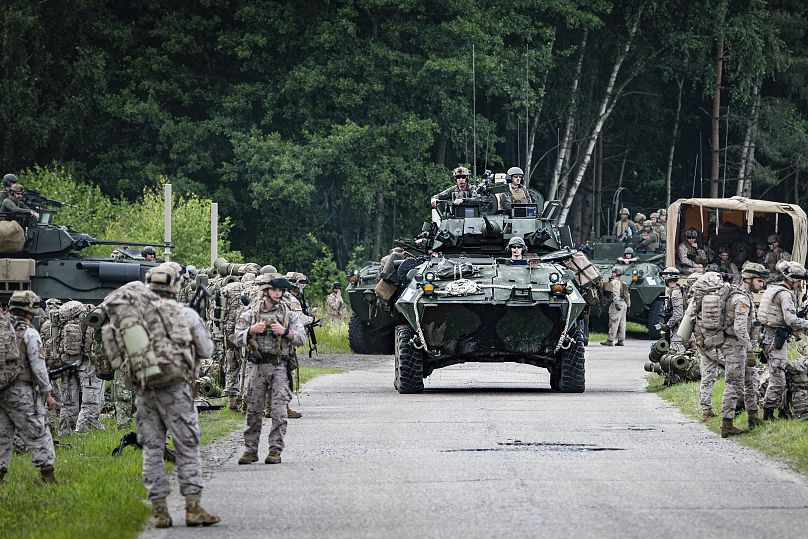The current proposal would break the previous defence spending record of 159 billion zlotys (€37 billion) in the 2024 budget.
Poland's 2025 budget will include record spending on defence, Prime Minister Donald Tusk has announced, as Russia's ongoing war in Ukraine brings danger closer to the EU's external borders.
 ADVERTISEMENT
ADVERTISEMENT
 ADVERTISEMENT
ADVERTISEMENT
The government will allocate 187 billion zlotys (€43.6 billion) towards defence, in a budget proposal that Tusk described as "generous" and supporting further economic growth for the nation, which borders both war-torn Ukraine and the Russian province of Kaliningrad.
"Inflation in check. Record economic growth in years. A real increase in the minimum wage and the start of investments, especially the key ones, related primarily to energy, rail infrastructure," the prime minister said at a news conference.
"And alongside this the great effort ahead of us and from which there is no turning back, that is, the increase in spending on armaments and defence," he added. "It is a great effort, but there is no turning back from it."
Finance Minister Andrzej Domański said that the defence spending proposal would constitute 4.7% of gross domestic product, compared to 4.2% this year, which already makes Poland a leader in NATO and the European Union.
Warsaw, which supports Ukraine's struggle against Russia's full-scale invasion, is making large purchases of military equipment, including fighter jets, tanks and missile defence systems from the US and South Korea.
About 4.6 billion zlotys (€1.07 billion) will also be put towards the construction of Poland’s first nuclear plant, which is expected to be operational in northern Poland in 2035.
The country has been taking strides in recent years to cut its dependence on energy sources coming from Russia, like gas and oil.
It comes as Poland's economic growth is expected to be 3.9% next year, compared to 3.1% in 2024.
Domański says an inflation rate of 5% is expected, up from some 4% this year and the deficit will reach 289 billion zlotys (€69.5 billion).
The budget plan will be debated with the trade unions and needs approval from Poland's MPs and President Andrzej Duda.











